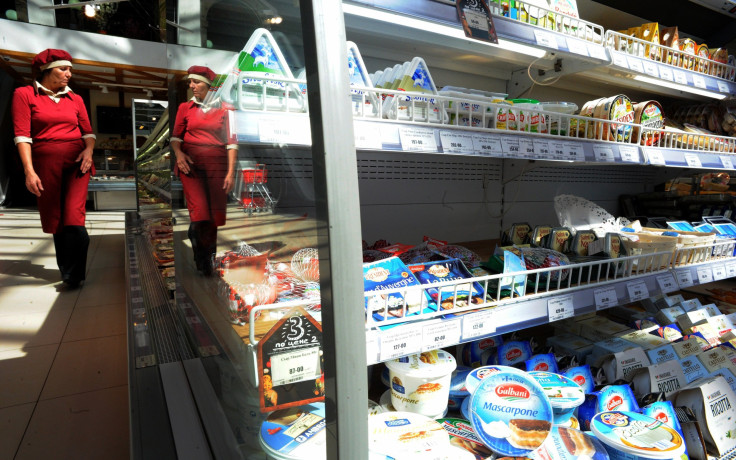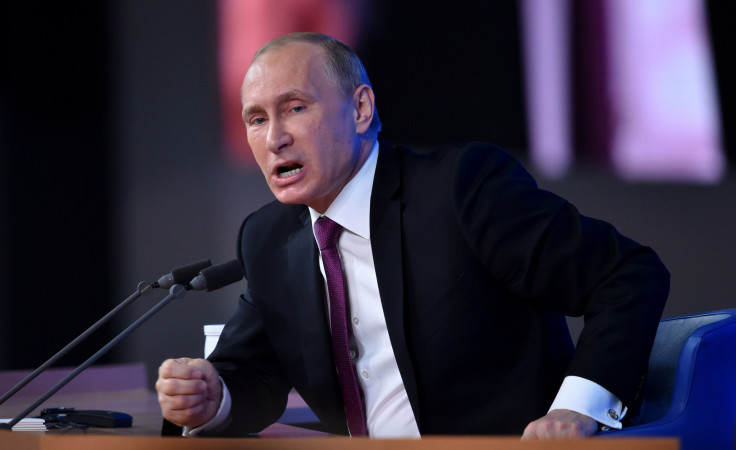Russia Food Import Sanctions: EU, US Contraband Nationwide Crackdown Ordered By Putin

Russia's crackdown on finding and destroying contraband foods imported from the EU or the U.S. has been expanded beyond border controls to the entire country. The Russian Ministry of Agriculture, as well as several independent watchdogs, were set to perform checks for illegally imported food and destroy it if found across the nation, the Russian daily Kommersant reported Monday.
"That means that if officials from the customs service, phytosanitary (agricultural product) control or Rospotrebnadzor (consumer rights) find sanctioned produce during an inspection of, for example, a retail distribution center, the food will be destroyed in accordance with general regulations," Vasily Itskov, a Russian government representative said, as reported by Russian news service Sputnik International.
Sanctions against the EU and the U.S. have existed in Russia since August 2014. They came following EU and U.S. sanctions against Russia over Russia's reported military involvement in Ukraine, and Russian President Vladimir Putin has significantly ramped up efforts to impose other sanctions during the past month. After renewing sanctions in June for at least another year, Putin signed a decree into law last Wednesday that ordered all contraband food destroyed on sight.

Russia has long been a significant importer of foreign food products, especially from European nations such as France, and the harsh sanctions have taken a toll on the daily lives of many ordinary Russians. Citizens have complained of missing their usual cheese, from Italy or France, or even cans of Coca-Cola.
Putin's decision to extend the "search and destroy" decree beyond the border controls follows just days after disagreements between Russia and U.N. security council members over an investigation into MH17, the plane that was shot down over Ukraine, reportedly by pro-Russian separatists. Russia vetoed the resolution Thursday in the U.N., and Putin has refused to allow an international probe into this matter.
In response to the U.N. Security Council veto vote, the U.S. tightened sanctions against Russia Friday, adding several Russian citizens to the blacklist in an effort to prevent Russian individuals from circumventing sanctions.
© Copyright IBTimes 2024. All rights reserved.






















